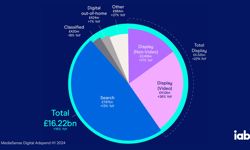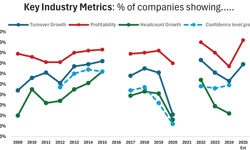
Hearst Magazines, in partnership with the Ad Council Research Institute (ACRI), has announced the findings of “Time to Talk,” a study on mental health in the commercial space. The research, which includes qualitative interviews and a survey of more than 4,000 consumers, was designed to help brand marketers better understand how to effectively communicate about mental health. The announcement was made by Global Chief Revenue Officer Lisa Ryan Howard and lead researcher and managing director of the Ad Council Research Institute Derrick Feldmann.
"Our partnership with the Ad Council Research Institute comes at a critical time as brand marketers increasingly understand the importance of addressing mental health in their messaging,” Howard said. “One in five U.S. adults experience mental illness each year and yet less than half receive treatment. We, as an industry, need to help normalize and encourage conversations early about how we are feeling and with this study, we found that to do that effectively, authenticity and practicality are key.”
According to the study, nearly two-thirds of respondents overall said that when a company shares a message about mental health, they perceive it as positive. A selection of findings from the study include:
- Consumers want to see that a brand is serious about mental health and expect to see that commitment incorporated in a company’s values, including their benefits.
- Younger generations have the most positive view of brands talking about mental health. (Gen Z 68%, Millennials 70%, Gen X 60%, Boomers 51%)
- Brands can talk about every part of the mental health journey, but respondents preferred engaging in prevention messaging.
- Messaging from brands should be encouraging and informative, emphasize that support is available, be inclusive and diverse, and delivered by trusted experts.
- Brands should not downplay the importance of seeking help and should not try to sell a product or service within the context of their mental health messaging.
- Brands should provide mental health support specifics, including information for local resources, including guides for finding the right therapist or doctor.
Feldmann said: "Mental health issues affect millions of people, often times starting from a young age. Our findings offer key insights and a toolkit for brands on how to approach mental health messaging, whether it's through advertising campaigns, direct marketing, social media posts, thought leadership, or communications around topical moments. By following these guidelines, brands can play a pivotal role in supporting mental health and promoting positive outcomes."
The full findings were shared at The Mind Lab event at Hearst Tower in New York City, where the Ad Council Research Institute presented the study in detail together with editorial leaders from brands across Hearst Magazines’ portfolio, including Good Housekeeping, Men's Health, Oprah Daily and Women's Health. Attendees had the opportunity to download and review the complete study, added the publisher.
The Mind Lab event included one-on-one conversations with host, content creator & comedian Tefi Pessoa, and retired professional athlete, creative consultant and producer, entrepreneur Ashlyn Harris moderated by editors-in-chief from Cosmopolitan and Women’s Health, Jess Giles and Liz Plosser. These discussions aimed to highlight the importance of efforts to normalize mental health, including the “Love, Your Mind” campaign from Huntsman Mental Health Institute and the Ad Council.
Keep up-to-date with publishing news: sign up here for InPubWeekly, our free weekly e-newsletter.











